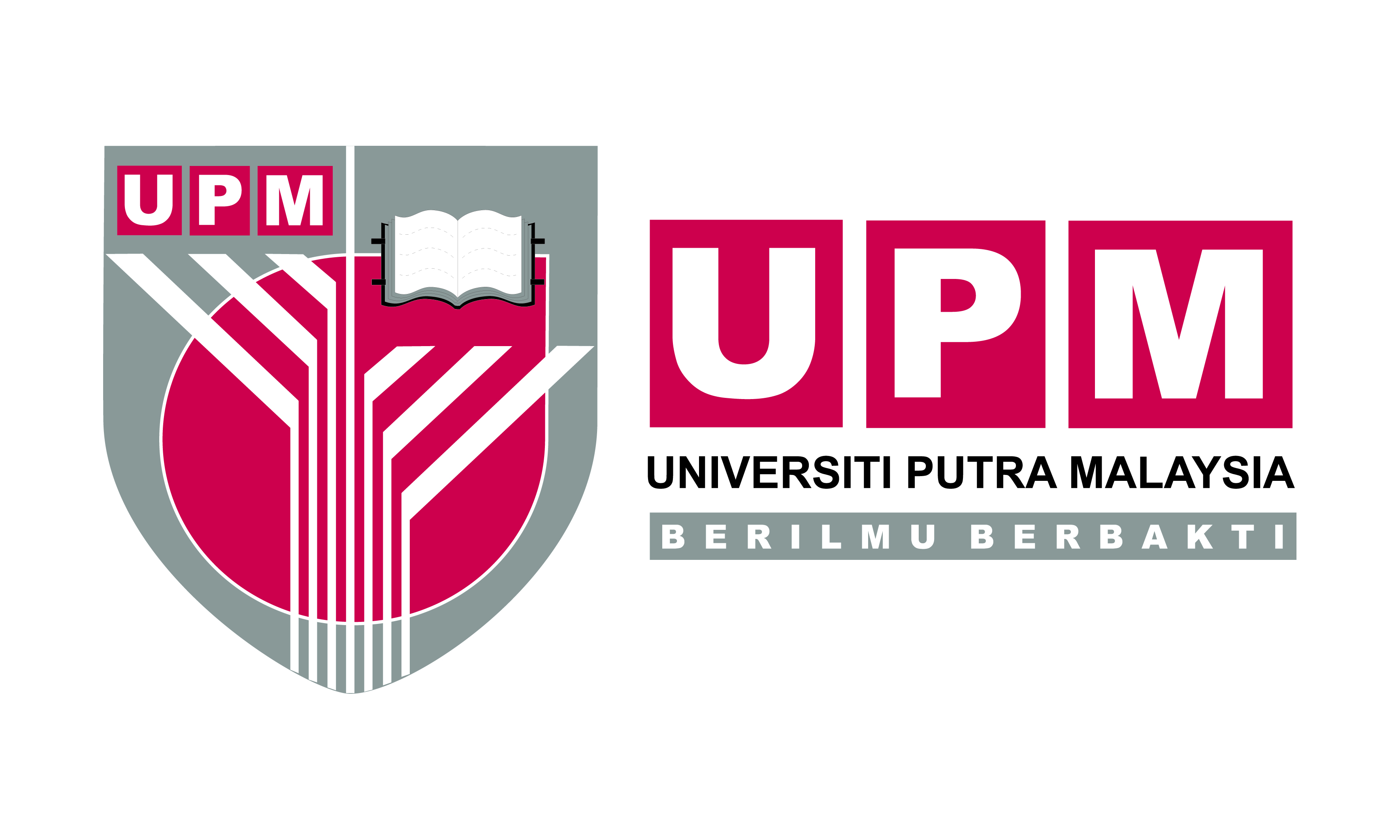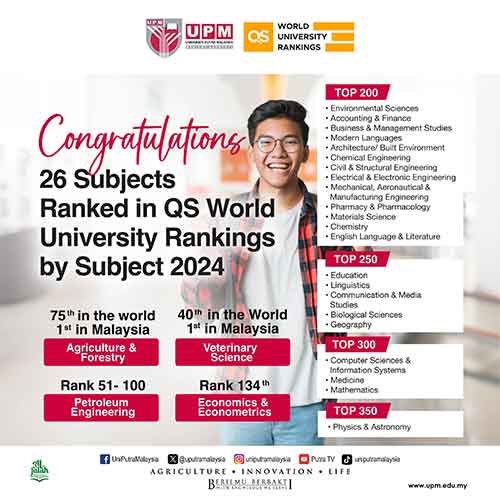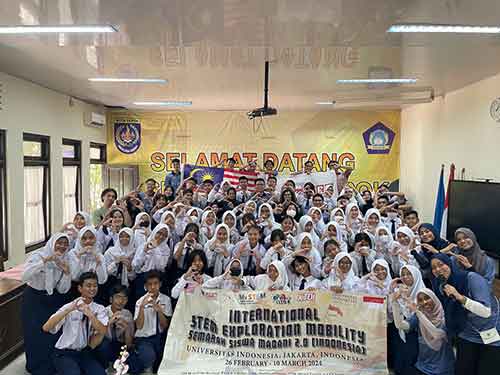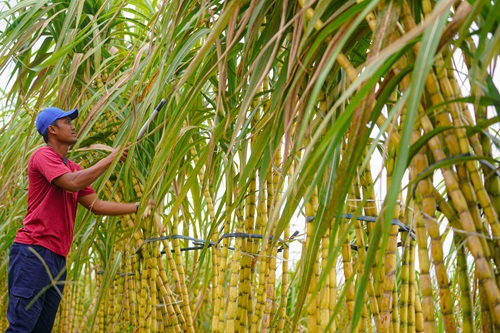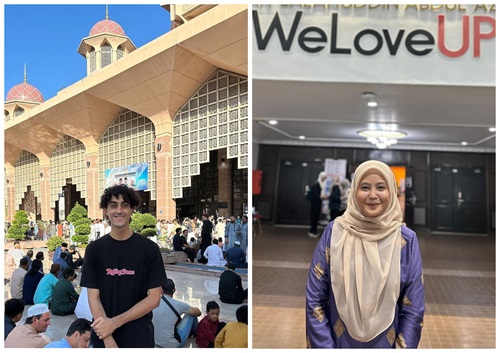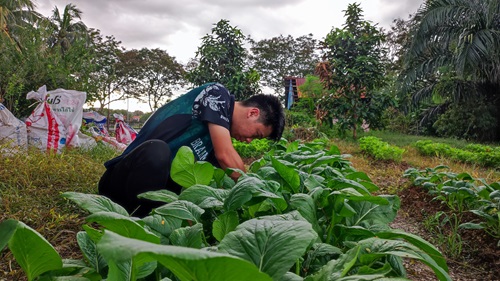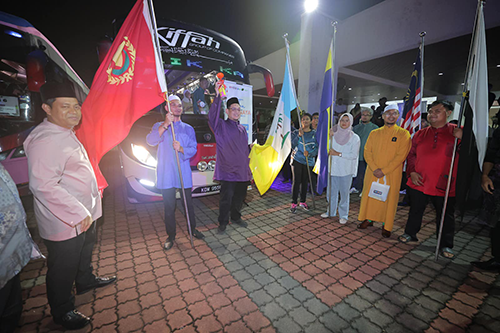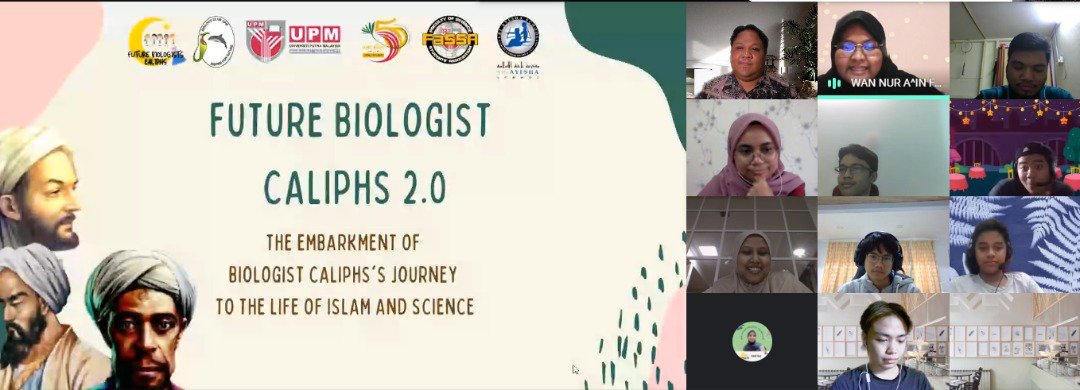
By: Dr. Mohd Noor Hisham Mohd Nadzir, Aidil Ashraf Badaruddin, Nur Hidayah Roslan & Wan Nur A'in Faqehah Wan Muhamad Azizi
SERDANG, May 26 – A total of 30 Form 4 and 5 students from Sri Ayesha Islamic School have participated in the Future Biologist Caliphs 2.0 programme to expose them to the relationship between biology and Islamic knowledge through exciting activities conducted entirely online.
The programme, organised by the Biology Student Club (KMB), Department of Biology, Faculty of Science, UPM, was held on May 25 and 26 and managed by 31 committee members of the Future Biologist Caliphs 2.0 programme. The theme was 'The Embarkment of Biologist Caliphs Journey into the Life of Islam and Science'.
Among the activities conducted throughout the programme were "Attajarib Biologiya", "Ya Biocaliphs, Bi Surrah" and "Al Mutahah Fi Biocaliphs".
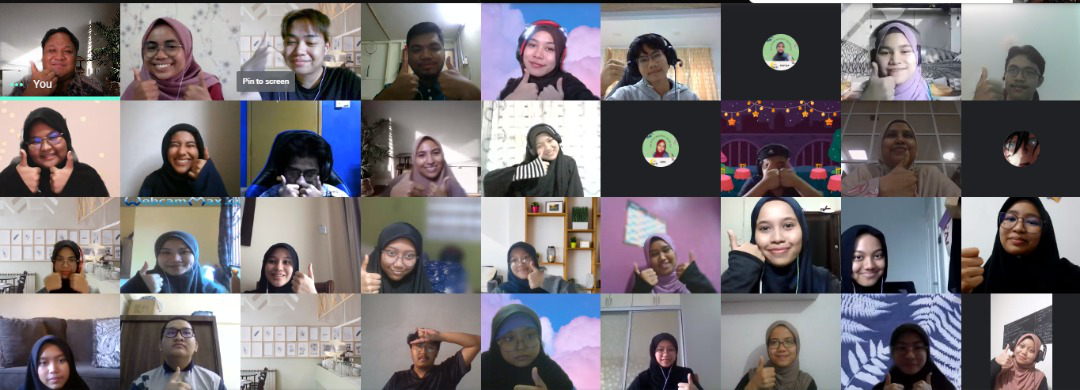
In the "Attajarib Biologiya" activity, the students were required to conduct experiments with their group members and observe the final results from the experiments.
Through such activity, the students could link the experimental results with the words of Allah SWT found in the Qur'an such as the diversity of fingerprints, the variation of the taste and the importance of the lungs and the heart to humans.
Meanwhile, the "Ya Biocaliphs, Bi Surrah" activity tests the students' ability to answer the provided questions as quickly as possible.
In that activity, the students simulated a situation of being trapped in a book that tells the stories of great Islamic figures in the past, and they would need to answer all the questions provided to escape from the book. The games used a variety of exciting applications, including Google Meet, Typeform and Google Slides.
The "Al Mutaah Fi Biocaliphs" is a virtual adventure activity where students have to resolve all the challenges within the shortest time to win the game.
KMB and programme adviser, Dr Mohd Noor Hisham Mohd Nadzir, said the programme's theme would provide new insights to science stream students, as there is always a link between science and Islam.
"The activities conducted are also able to enhance the spirit of cooperation and healthy competitive attitude as well as the leadership skills in completing the missions throughout the programme," he said.
He also added that the programme, which was continued for the second time, had a slight difference from the previous year as although the platform used for this time around was fully online, the activities were still conducted in a lively atmosphere and were also able to cultivate critical thinking skills in the students in solving science-related problems.
In addition, students could also apply the knowledge gained from the programme in their daily lives.
Programme Director, Aidil Aydraf Badaruddin, said although the programme could not be conducted face-to-face like it was in the previous year, the facilitators and students still showed active participation and excitement in each of the online activities.
"This programme has opened our eyes as facilitators as well as of the students from Sri Ayesha Islamic School on Islamic knowledge applications in science, especially in biology," he said.
At the end of the programme, the students provided their reflections on the programme and recounted new experiences gained throughout the activity.
In general, the students had expressed feelings of fun and joy for participating in the activity and hoped that they would be given the opportunity to participate in it again in the future.
Three students who participated actively in the programme were acknowledged and awarded respectively with a cash prize of RM100 contributed by the Faculty of Science, UPM. At the same time, three groups that earned the highest overall score were crowned as winners and received a total cash prize of RM1,000 sponsored by MySTEM UPM. - UPM
